Ophthalmic surgery negligence claims are for compensation when eye surgery goes wrong. You trust the ophthalmic surgeon with your eyesight and do not expect them to damage it.
Ophthalmic surgery is precise medical work on your eyes. The highly-trained surgeon must be alert at all times and not be negligent when treating you.
If you or a loved one suffers ophthalmic surgery medical negligence, you may have a compensation claim. The expense of fixing the surgeon’s errors will cost you in more ways than one, and you can seek compensation for the eyesight negligence.
A No Win No Fee medical negligence solicitor can make your compensation claim for ophthalmic surgery negligence and get you the money you deserve.
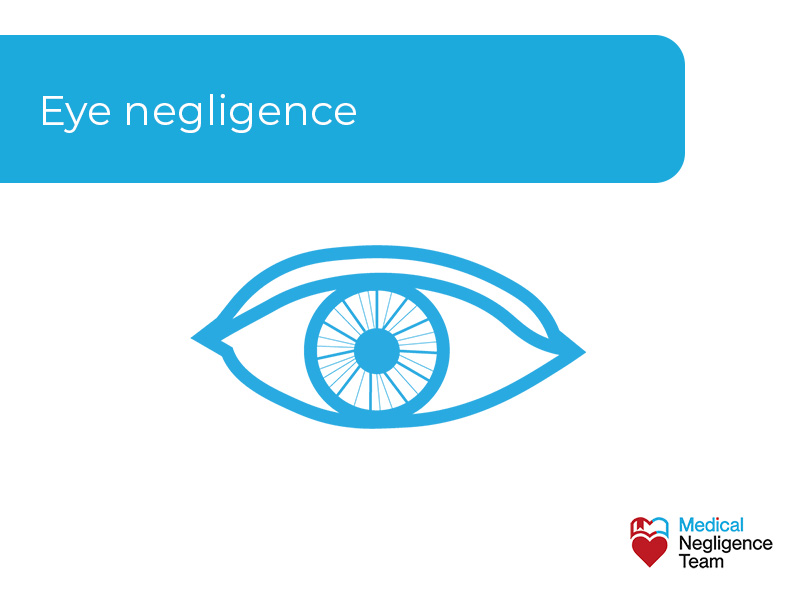
Table of content
What is ophthalmic surgery negligence?
Ophthalmic surgery negligence is when work to correct a problem with your eyes goes wrong due to medical negligence.
The ophthalmic surgeon, instead of doing a job at a professional and acceptable level, is negligent and damages your eyes.
Ophthalmic surgery negligence can also be the misdiagnosis of an eye problem, such as the need for surgery or dismissing an eye infection without treating it.
Eyesight negligence often happens due to a delay in ordering surgery or the prescribing of strong antibiotics. Time is crucial with any medical condition, and it is even more so with eye conditions.
Losing your eyesight or having it permanently damaged is terrifying. Discovering what happened to your eyes resulted from ophthalmic surgery negligence can be a huge shock.
A No Win No Fee medical negligence solicitor can help you get the compensation you deserve at a difficult time for you or a loved one. They will fight your case and get you the money you deserve for the ophthalmic surgery negligence.
What are the types of ophthalmic surgery negligence?
The types of ophthalmic surgery negligence range from errors during surgery to infections and delays in treating eye problems.
You should not have to experience ophthalmic surgery negligence, but it happens and can have serious consequences. Many people may not even realise they have suffered ophthalmic surgery negligence until they discover the different types of it.
Types of ophthalmic surgery negligence are:
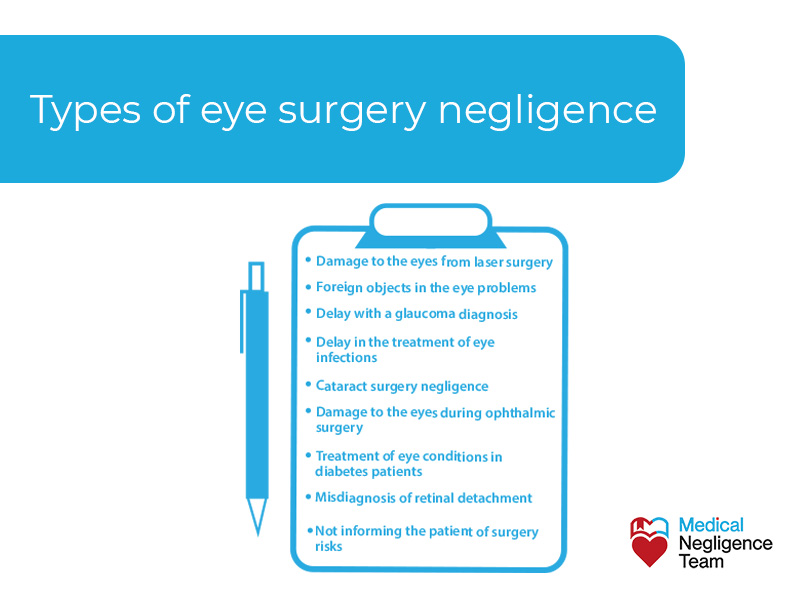
Damage to the eyes from laser surgery
Damage to the eyes from laser surgery happens when equipment is not used correctly by the surgeon. Damage to the eyes can also happen if the equipment is not calibrated correctly or not maintained to a high standard.
Laser surgery damage to the eye can make your vision worse. The surgeon may overcorrect or undercorrect the original problem using the laser equipment.
Double vision, glare and starbursts are a sign of laser eye surgery negligence.
Foreign objects in the eye problems
Foreign objects in the eye problems are when the ophthalmic surgeon does not remove the object or only partially removes it from the eye.
The surgeon may also not see the foreign object while doing an examination, leaving it to do more damage and cause infection.
Foreign objects in the eye, even a speck of dust, can do a lot of damage and be very painful.
Delay with a glaucoma diagnosis
Delay with a glaucoma diagnosis happens when there is eyesight negligence in the initial examination by the ophthalmic surgeon. Instead of giving you a full eye examination, they miss the signs of glaucoma and let it get worse.
Glaucoma is an easily treatable eye problem. A delay by the ophthalmic surgeon in the diagnosis of the condition may cause years of unnecessary suffering and eyesight problems.
Delay in the treatment of eye infections
Delay in the treatment of eye infections can happen if the possible infection is diagnosed as something less, like a scratch or dust in the eye.
Eye infections can present as weeping, redness and swelling, which are also symptoms of other eye conditions. A misdiagnosis causes delays and the condition not being treated.
Any delay in the treatment of eye infections misses valuable time in clearing the infection. In some people, the infection can quickly deteriorate and put the eye at risk.
Cataract surgery negligence
Cataract surgery negligence involves failing to fully remove the cataract or damage done to the eye during the removal process.
The ophthalmic surgery can go wrong by incorrectly placing the new lens into the eye. Infection, irritation and loss of eyesight can happen if the surgeon is negligent during the cataract surgery.
Damage to the eyes during ophthalmic surgery
Damage to the eyes during ophthalmic surgery is when the surgeon scratches the cornea or snips a nerve during surgery. Other areas of damage include perforation of the eyeball and injury to the lens.
Ophthalmic surgery is a very precise area of medicine. The ophthalmic surgeon has to be very careful when using the highly-calibrated equipment not to do further damage.
Treatment of eye conditions in diabetes patients
Treatment of eye conditions in diabetes patients can make the difference between keeping or losing their eyesight. An ophthalmic surgeon providing a professional service will diagnose and treat a diabetes patient properly.
A negligent one will miss the potential problems and cause damage to the eye.
Changes in the body’s blood sugar levels can do damage to the cells of the retina. When examining a diabetes patient, the doctor must take this into account and look out for the danger signs.
To not do so is ophthalmic surgery negligence.
Misdiagnosis of retinal detachment
Misdiagnosis of retinal detachment is when the ophthalmic surgeon misses the signs of the retina detaching from the rest of the eye or the potential of it happening.
Retinal detachment can happen from a sports injury or any kind of eye trauma.
When examining a patient with an eye injury, the surgeon must always be aware of the dangers of retinal detachment.
Not informing the patient of surgery risks
Not informing the patient of surgery risks is medical negligence and should never happen with eye surgery. Ophthalmic surgery can go wrong, but the risks must be outlined to the patient well before any operation.
The patient must be given time to weigh up the pros and cons of the ophthalmic surgery and make an informed decision on whether or not they want to proceed with it.
Who is at fault for ophthalmic surgery negligence?
An ophthalmic surgeon is responsible for ophthalmic surgery negligence. They are the ones who, instead of providing you with a quality service, were negligent in treating your eye problem.
Ophthalmic surgery should be undertaken with care and at an acceptable standard of skill and diligence. You are putting your eyesight into the hands of the ophthalmic surgeon and do not expect eyesight negligence in return.
Ophthalmic surgery negligence happens when the surgeon does not carry out surgery at a professional level or misdiagnoses a condition leaving it to worsen and damage your eyesight.
If you suffer from ophthalmic surgery negligence, you can file a compensation claim for the damage done to you.
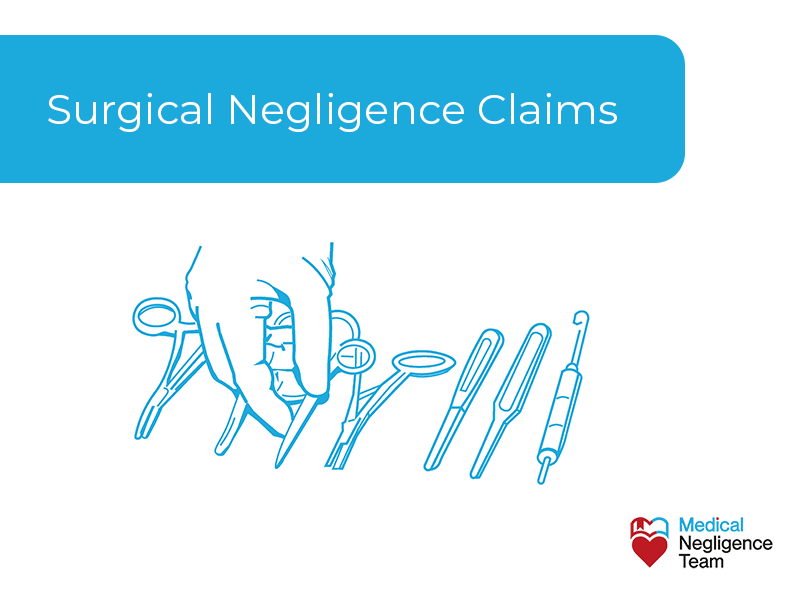
How much can I claim for ophthalmic surgery negligence?
You can claim for ophthalmic surgery negligence amounts of more than £10,000 for a misdiagnosis case to amounts in excess of £50,000 for permanent damage to your eyes.
When making a claim for ophthalmic surgery negligence, you are looking for compensation for what happened at the hands of a medical professional.
The negligent treatment caused temporary or permanent damage to your eyes or eyesight, and you deserve compensation for the suffering.
There is not one fixed amount awarded for ophthalmic surgery negligence cases. The amount of compensation differs from patient to patient, depending on the circumstances of the ophthalmic surgery and its effects.
The amount of compensation you receive is case by case and can be assessed by a No Win No Fee medical negligence solicitor.
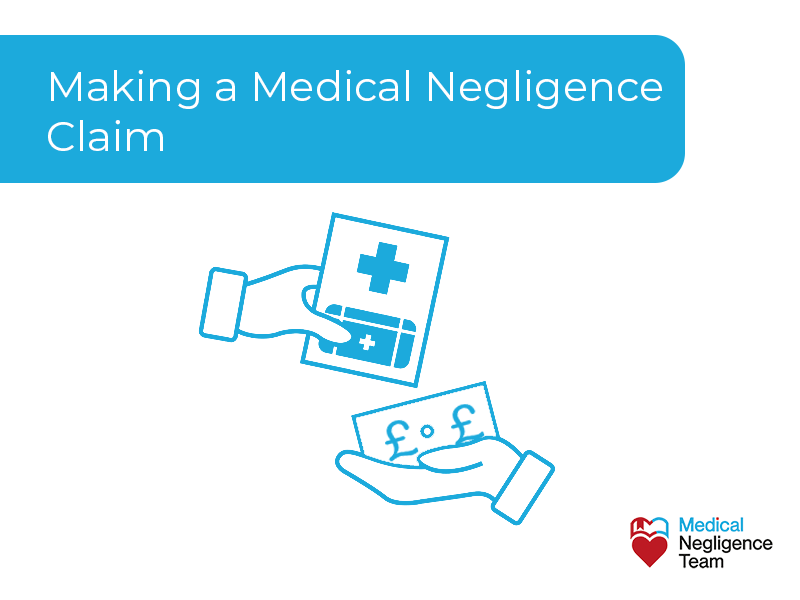
What can you claim for when suing for ophthalmic surgery negligence?
You can claim compensation for any damages that occurred when suing for ophthalmic surgery negligence.
There are two types of compensation damages due when suing for any type of medical negligence: General damages and Special damages.
General damages
General damages are when you sue for the pain, suffering and the loss of amenity, PSLA, you have experienced due to negligence.
Special damages
Special damages include loss of earnings, future care costs, and out-of-pocket expenses.
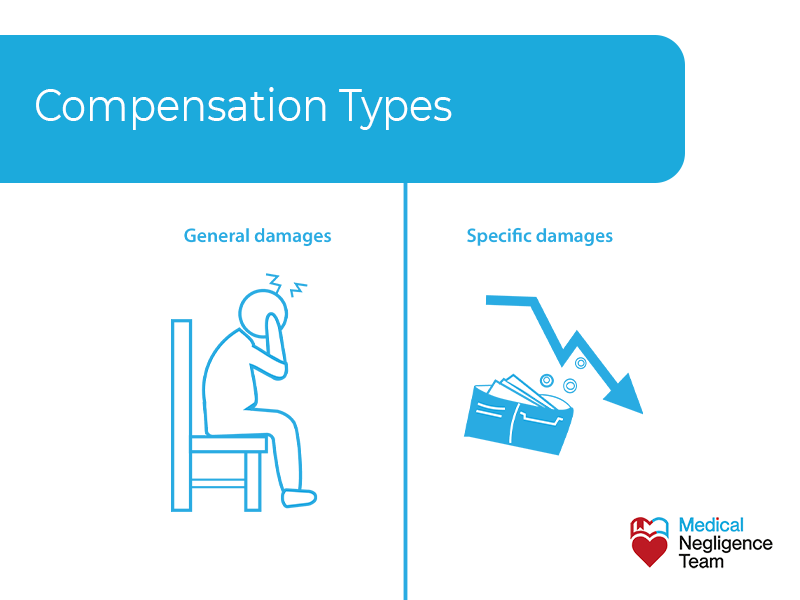
Be sure to keep payslips, receipts and proof of any losses you experience as a result of the medical negligence.
You deserve compensation to cover all losses, including loss of life, medical costs and any long-term care needs.
When you or a loved one suffers from the effects of ophthalmic surgery negligence, you make a claim for compensation.
Your No Win No Fee solicitor will guide you through the steps in making an ophthalmic surgery negligence claim.
What are the steps involved in making an ophthalmic surgery negligence claim?
The steps involved in making an ophthalmic surgery negligence claim go from seeking medical advice to issuing court proceedings.
The steps are a part of any successful compensation case, and settlement can happen at any stage in the process.
Your medical negligence solicitor will do the rest when you follow the steps correctly and get all the facts and figures together.
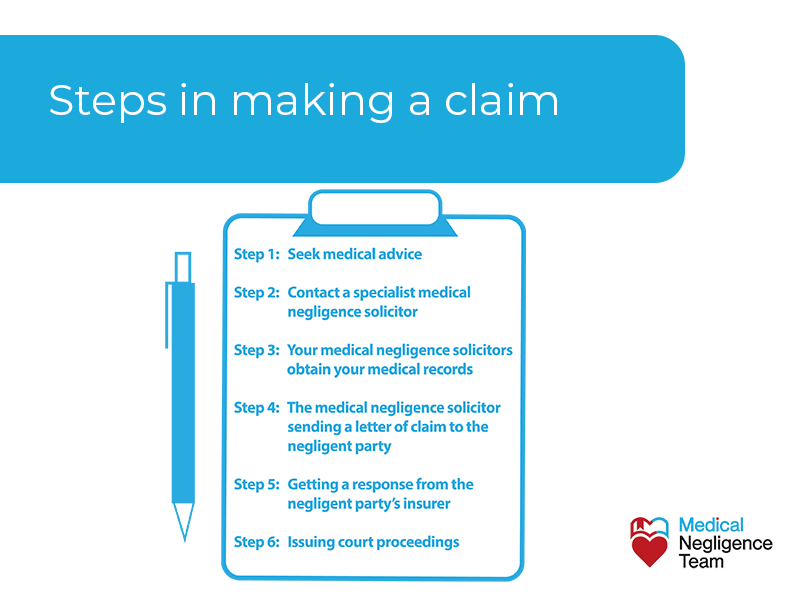
Step 1: Seek medical advice
Seek medical advice on the injuries you have suffered or are suffering with immediately you realise you experienced ophthalmic surgery negligence.
Step 2: Contact a specialist medical negligence solicitor
Contact a specialist medical negligence solicitor who operates on a No Win No Fee basis and tell them what went wrong. The right solicitor will look at your case, see where the problem lies, and advise if you suffered ophthalmic surgery negligence.
The Medical Negligence Team also have a 100% Compensation Guarantee scheme, where you get all the money awarded in a negligence claim.
You are the one who suffered medical negligence, and you should get all the money due for the suffering.
Step 3: Your medical negligence solicitor obtains your medical records
Your medical negligence solicitor obtains your medical records with your permission. By reading your records, they will confirm if they think you have a valid ophthalmic surgery negligence case.
The medical negligence team will know from reading your medical records if the case will result in compensation being paid.
Step 4: The medical negligence solicitor sending a letter of claim to the negligent party
The medical negligence solicitor sending a letter of claim to the negligent party is the next step. The letter will ask them to admit the ophthalmic surgery negligence in what is known as ‘sending a letter of claim.’
When the negligent party receives the letter of claim, it has up to four months to provide a written response.
Step 5: Getting a response from the negligent party’s insurer
Getting a response from the negligent party’s insurer will move your compensation claim closer to a conclusion.
The insurer will either admit the medical negligence or say they intend to defend the case. Deciding to defend the case is known as ‘deny liability’ in legal terms.
If they admit liability, your ophthalmic surgery negligence claim can be valued, and the two parties will meet to decide on your compensation payment.
Your solicitor will negotiate with the negligent party and use their experience to get the compensation you deserve.
Step 6: Issuing court proceedings
Issuing court proceedings is the next step if they deny liability in your ophthalmic surgery negligence case.
Going to court happens, too, when they are not prepared to pay a fair amount for the injuries you have suffered. Your medical negligence solicitor issues the court proceedings.
Remember that less than 1% of medical negligence cases end up in court, and very few of those cases ever make it to the courtroom.
Using a No Win No Fee solicitor
Using a No Win No Fee solicitor is the only way to a successful ophthalmic surgery negligence claim. Your No Win No Fee medical negligence solicitor will not charge you for a claim you do not win.
Always have a fee agreement in place before engaging a medical negligence solicitor. If they start talking of a ‘win fee’ or a ‘success fee,’ you should walk away. The negligent party insurers should pay all fees.
The medical negligence solicitor should also operate a 100% Compensation Guarantee scheme. When you win the case, all the money awarded should go to you, not the solicitor.
You are the one who suffered ophthalmic surgery negligence, and you deserve the compensation to get your life back to normal.
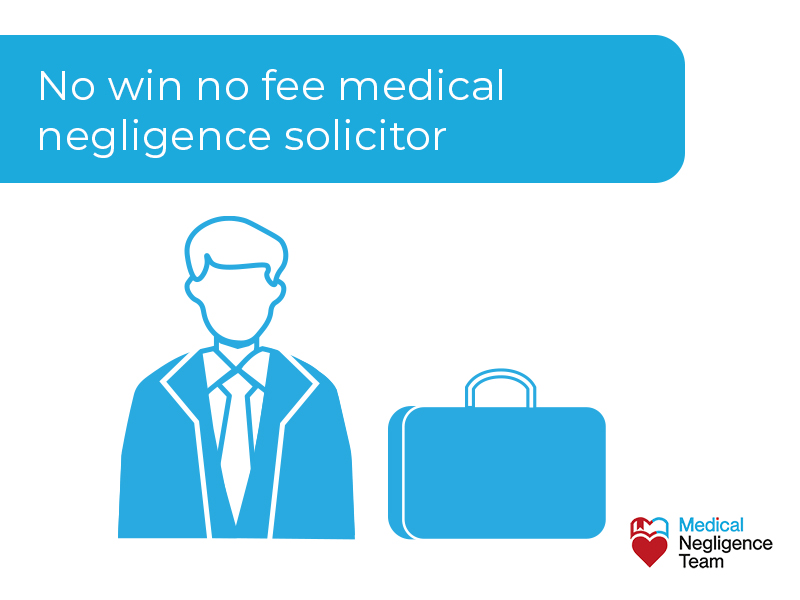
How long do I have to make a claim for ophthalmic surgery negligence?
You have three years to make a claim for ophthalmic surgery negligence. All medical negligence claims are subject to limitation periods.
For example, in England and Wales, medical negligence claims must generally be brought, court proceedings issued within three years of the injury, or three years of knowledge of the facts giving rise to the claim.
If someone has passed away, it is the date of death if the limitation period has not expired at the date of death.
Children not under a disability typically have until they reach 21 to start an ophthalmic surgery negligence claim or court proceedings.
Persons under a disability, who lack capacity, are not subject to any limitation period.
Can I make a medical negligence claim against the NHS?
Yes, you can make a medical negligence claim against the NHS. Suing the NHS for negligence is not unusual. People sue the NHS for compensation for medical negligence and receive the money they deserve for the negligent treatment.
Each year there are between 8,000 and 10,000 successful medical negligence claims against the NHS. Suing the NHS for medical negligence can make some people feel uncomfortable.
Amounts in compensation claims awarded against the NHS range from £1000 to over £10 million. The amount you receive covers minor injuries such as scarring to serious life-threatening negligence, which leaves you with long-term care needs.
We trust in and use the NHS daily and do not expect negligence. It happens, though, and the NHS has a dedicated team to handle medical negligence compensation claims, called NHS resolution.
NHS Resolution has a responsibility to treat patients who seek compensation fairly. Patients pay for the NHS through their taxes, and for that they deserve respect and the best medical treatment.
Contact The Medical Negligence Team
Contact the Medical Negligence Team today to discuss your ophthalmic surgery negligence claim for compensation. We have both the legal and medical experts to guide you along the steps to a successful medical negligence claim for compensation.
At the Medical Negligence Team, we fight every compensation claim on a No Win No Fee basis. You will not be out of pocket for an unsuccessful claim.
We have a very high success rate and a reputation for a speedy and successful resolution to all medical negligence cases.
Our 100% Compensation Guarantee puts all the money you win into your pocket. You or your loved one suffered ophthalmic surgery negligence, and you deserve every penny of the compensation.
Contact us at the Medical Negligence Team for all your medical negligence needs.


